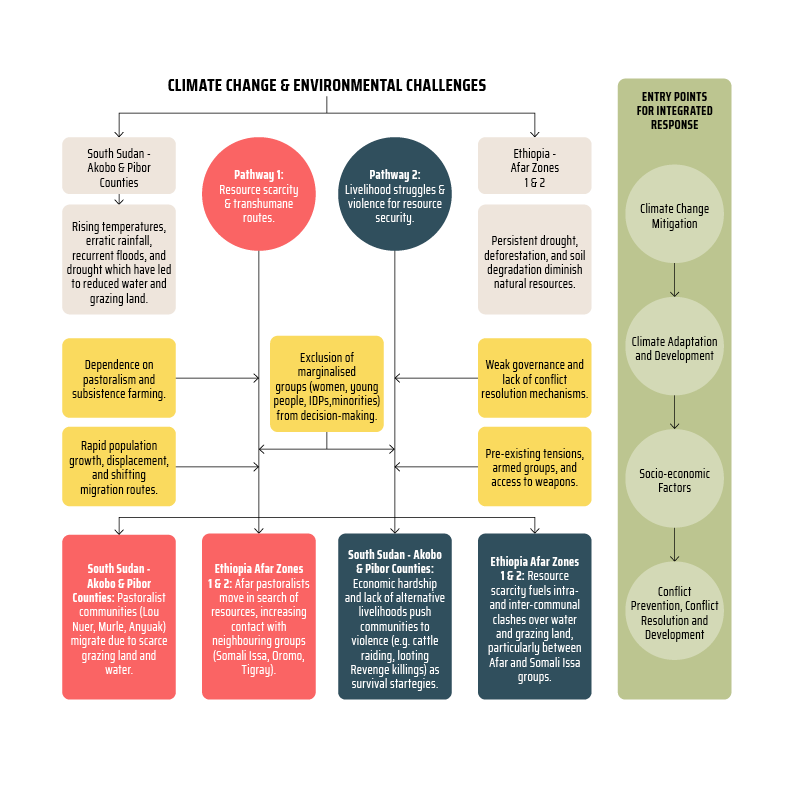A DCA study in South Sudan and Ethiopia explores the interconnections between climate change, conflict and inequalities and highlights the urgent need for finance for integrated approaches.
The need for adjusting to and preparing for current and future effects of climate change – climate adaptation – is increasing rapidly, as the effects of climate change become more and more critical.
Climate adaptation and DCA
Climate adaptation is the process of adjusting to current or expected effects of climate change. Climate adaptation is especially important in the Global South since a lot of countries here bear the brunt of the effects from climate change.
Read more about our work with climate adaptation.
According to UNEP’s Adaptation Gap Report (2024) the current global gap in adaptation finance is estimated at US$187-359 billion per year. The need for adaptation finance is even more pronounced in settings facing fragility and conflict, which receive less than two thirds of adaptation funding per capita compared to other low-income countries.
As many fragile and conflict affected countries are also highly vulnerable to the impacts of climate change, there is a huge potential to invest in adaptation initiatives that deliver jointly on climate and peace outcomes.
Study finds climate change fuels displacement and conflict
To better understand how the impacts of climate change interact with other vulnerabilities, inequalities and drivers of violent conflict in the communities that we work with, and to inform the design of future initiatives, DCA, with funding from DANIDA, commissioned a study in Ethiopia and South Sudan.

Through interviews and focus group discussions, the study found that climate change and environmental degradation are worsening competition over key resources, such as water, fertile soil and pastureland, deteriorating livelihoods, ways of life, and leading to the displacement of people in search for water and fertile land.
The compound impacts of climate change and persistent conflicts disproportionally affect women, children, and displaced persons. Women continue facing exclusion from decision-making despite shifts in roles.
In other words, women are working harder, are being more exposed to gender-based violence and yet, they don’t always get a seat at the table when decisions are being made at the local level.
With the loss of forests comes drought. When drought comes, it affects animals and people. Women are so tired. To mine gold, they dug the ground and cut trees, and all the trees were cut down. There were no trees in the country.Women’s Group Member in Berhale, Afar Region, Ethiopia
Financing climate change adaptation is financing peace
There is an urgent need for climate-sensitive peacebuilding and governance interventions to support and strengthen community resilience strategies with a focus on fostering inclusivity and gender transformative approaches.
Financing conflict sensitive climate adaptation in these contexts holds potential to help communities and countries to respond to the impacts of climate change and address the root causes of conflict, fragility and inequality.
The study recommends future programming in the areas of study to:
- Be informed, inclusive and integrated
- Focus on strengthening governance and conflict resolution mechanisms
- Integrate climate resilience and livelihood diversification
- Address vulnerabilities and transform inequalities
- Advance local governance and policy reforms
- Foster regional collaboration
If you want to learn more about the study and the recommendations, you can consult the briefs for Ethiopia here and for South Sudan here.

